Top categories

Containers

Truck

Golf Carts

Bus

Special Transportation

New Energy Vehicles

Emergency Vehicles

Train Carriage

Locomotive

Motorcycles & Scooters

ATVs & UTVs

Automotives

Trailers
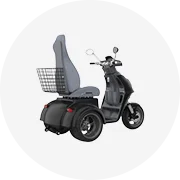
Tricycles
About products and suppliers
As the world pivots towards sustainable and efficient modes of transportation, diesel mopeds are carving a niche in the urban landscape. These two-wheeled marvels combine the classic allure of mopeds with the robust efficiency of diesel engines, offering an intriguing alternative to their gasoline-powered counterparts. From the pioneering days of early models to the multifuel capabilities of modern machines, diesel mopeds have evolved to meet the demands of performance and eco-consciousness. This article dives into the world of diesel mopeds, exploring their emergence, technological advancements, and the practical implications of their use in today's fuel-conscious society.
The Emergence of Diesel Mopeds

The inception of diesel mopeds traces back to an era when mass production of such vehicles began. Initially, diesel engines were retrofitted into used frames by street mechanics, which garnered significant attention. Recognizing the potential, the industry launched efficient diesel motorcycles with notable efficiency. While early models were eventually discontinued due to environmental regulations, their legacy marked the emergence of diesel mopeds. Manufacturers followed suit, producing diesel motorcycles known for their hand-assembled quality and military-grade performance. The evolution of diesel mopeds continued with advancements in technology, leading to the development of models with multifuel capabilities, capable of running on various types of jet fuel and biodiesel. This adaptability and the increased power output signified a major leap in diesel moped technology. The journey of diesel mopeds is a testament to innovation and adaptability in the face of changing environmental and market demands.
Understanding Diesel Moped Technology
Diesel mopeds employ technology distinct from their gasoline counterparts, utilizing diesel engines that are known for their durability and efficiency. The technology behind these engines includes advanced features such as common rail turbo diesel systems, which are also used in certain automotive applications. These engines are capable of running on a variety of fuels, which can include standard diesel, biodiesel, and even certain types of jet fuel, showcasing their versatility.
The engineering of diesel mopeds often involves hand assembly and the integration of components to optimize performance. For instance, gearboxes from historical brands known for their reliability in the motorcycle world may be paired with modern diesel engines to create a unique blend of old-world craftsmanship and contemporary technology.
Performance-wise, diesel mopeds are designed to deliver a balance of power and fuel efficiency. Some models feature turbocharged engines that provide a significant power output while maintaining impressive fuel economy. This is achieved through meticulous engine development and testing, often in collaboration with advanced research institutions.
In terms of design, certain diesel mopeds incorporate innovative approaches to engine configuration, such as counter-rotating crankshafts in parallel twin cylinder setups, which aim to reduce vibrations typically associated with diesel engines. This focus on reducing engine harshness is indicative of the attention to rider comfort and overall vehicle refinement in the diesel moped segment.
Comparing Diesel and Gasoline Mopeds
When it comes to fuel efficiency, diesel mopeds stand out against their gasoline counterparts. Diesel engines are inherently more fuel-efficient, often by a significant margin. Specifically, diesel engines can be 25% to 35% more fuel-efficient than gasoline engines. This means that for the same volume of fuel, a diesel moped can travel a considerably longer distance.
In practical terms, if a gasoline moped achieves 30 miles per gallon, a diesel moped can reach between 37.5 to 40.5 miles per gallon. This efficiency translates to a diesel moped covering up to 40 miles for every 30 miles a gasoline moped can travel on the same amount of fuel. The implications for frequent riders are clear: diesel mopeds offer extended range and potentially lower fuel costs over time.
Moreover, the efficiency of diesel engines affects their environmental impact. Despite diesel fuel containing more carbon per gallon, the overall emissions per mile are lower for diesel engines compared to gasoline engines. This is because diesel mopeds can travel further on the same amount of fuel, making them a more environmentally conscious choice in terms of carbon dioxide emissions per mile traveled.
Key Features of Diesel Mopeds

Diesel mopeds are known for their exceptional fuel economy, which is particularly evident when powering two-wheeled vehicles. They offer a robust low-down torque and reliability that is often compared to military vehicles, suggesting a high level of durability and reduced maintenance needs.
The technology behind diesel mopeds has evolved, with some modern models incorporating engines adapted from cars, advanced braking systems, and design elements inspired by leading motorcycle brands. These advancements contribute to a unique blend of performance and efficiency.
Performance-wise, certain diesel mopeds can deliver rapid acceleration, with some models capable of reaching 60mph in a matter of seconds. Despite their power, these mopeds can still achieve impressive fuel efficiency, which is a testament to the advanced engineering that goes into their design.
Moreover, the longevity of diesel mopeds is notable, with some engines predicted to last for hundreds of thousands of miles with proper care. This endurance is paired with the practicality required for daily use, especially in urban environments where fuel efficiency and reliability are paramount.
Performance Metrics of Diesel Mopeds
Diesel mopeds have showcased unique performance metrics that set them apart from their gasoline counterparts. These mopeds are often equipped with engines that deliver modest power output but benefit from the high torque characteristic of diesel engines, contributing to a sufficient top speed for urban commuting.
One of the standout performance features of diesel mopeds is their fuel efficiency. This efficiency is not only cost-effective but also means less frequent fuel stops, making it a practical choice for daily use.
However, the performance of diesel mopeds is not without its challenges. High compression ratios can lead to significant vibrations, which may affect the riding experience, particularly when cornering. Starting a diesel moped can also be more demanding compared to a gasoline moped, often requiring a few kicks to initiate combustion.
Despite these challenges, the versatility of diesel engines in accepting a variety of fuels, including biodiesel and potentially biofuels, adds a layer of practicality and future-proofing against fuel scarcity. This adaptability could be a significant advantage as the world looks towards more sustainable and varied energy sources.
Efficiency and Environmental Impact
Diesel mopeds present a unique profile in terms of efficiency and environmental impact. Research indicates that two-stroke engines, often found in gasoline mopeds, are significant contributors to urban air pollution due to their incomplete combustion.
In contrast, diesel engines typically operate with a more efficient combustion process, potentially reducing the emission of harmful substances. However, the environmental impact of diesel mopeds also depends on various factors such as engine design, maintenance, and fuel quality. The shift from two-stroke to four-stroke engines in mopeds can lead to a considerable reduction in specific air contaminants, suggesting that diesel mopeds with advanced four-stroke engines could be a more environmentally friendly option.
The efficiency of diesel mopeds is also a point of interest. They are known for their lower fuel consumption, which can contribute to less frequent refueling and potentially lower operating costs. However, the overall environmental benefits of diesel mopeds would be more pronounced if the transition to cleaner technologies and fuels is embraced.
Applications and Use Cases

Diesel motorcycles have found various applications due to their unique characteristics. They have been utilized in demanding environments, showcasing their reliability and robustness. The multifuel capability of these motorcycles extends their utility across different operational scenarios and hints at their potential use in regions where specific fuels may be more readily available or economical.
The civilian versions of these motorcycles indicate a potential for these vehicles in everyday use. Events focused on fuel economy have seen diesel motorcycles demonstrate their efficiency and performance. Such competitions underscore the practicality of diesel bikes in terms of fuel economy, which is a significant consideration for both individual and commercial users.
The versatility of diesel motorcycles is further exemplified by models that, despite their limited production, have demonstrated the feasibility of diesel engines in two-wheeled vehicles. These motorcycles may appeal to enthusiasts and professionals who prioritize durability and unique engineering. The legacy of these bikes persists, reflecting their historical and practical significance.
Maintenance and Longevity
Diesel motor oils, while sometimes used in motorcycle engines, are not specifically formulated for the unique demands of these systems. Unlike oils designed for motorcycles, diesel oils may not maintain their viscosity under the intense conditions experienced in motorcycle transmissions, leading to a reduction in the oil's protective capabilities and potentially shortening the engine's service life.
Motorcycle-specific oils are engineered to resist the high temperatures and revving conditions of motorcycle engines, which can greatly exceed 5,500 rpm. These oils are crafted to provide consistent performance, ensuring that the engine and transmission are protected. Furthermore, they are formulated to support extended service intervals, effectively suspending clutch, transmission, and combustion deposits over longer periods than diesel motor oils.
The absence of certain additives in diesel engine oils, such as those that prevent rust and corrosion, can also affect the longevity of motorcycle engines. Motorcycle oils often incorporate anti-rust technology to safeguard engine components during both active use and off-season storage. This level of protection is typically not found in diesel engine oils, which could lead to increased wear and shorter engine life over time.
Selecting the Right Diesel Moped on Alibaba.com
When selecting the right diesel moped on Alibaba.com, potential buyers should consider various factors to ensure they make an informed decision. Diesel mopeds offer a range of engine capacities, typically from 49cc to 150cc, catering to different preferences for power and speed. The engine type is predominantly single-cylinder, known for its simplicity and reliability. The construction of these mopeds often features air cooling systems, which are essential for maintaining engine temperature and performance during operation.
The design of diesel mopeds varies from classic to sporty, with options available for both adult and youth riders. Some models come with additional features such as digital speedometers, providing a modern touch to the riding experience. It's important to note the efficiency of diesel engines, which generally offer better fuel economy compared to their gasoline counterparts. This makes diesel mopeds a cost-effective and environmentally friendlier option for commuting and leisure use.
Maintenance aspects are also a key consideration. Diesel engines are reputed for their longevity and durability, often requiring less frequent maintenance than gasoline engines. However, buyers should still be aware of the maintenance schedule and the availability of spare parts. Alibaba.com's extensive network of suppliers ensures that purchasers have access to a wide range of mopeds and the necessary support for maintenance and parts replacement, making it a reliable platform for sourcing diesel mopeds.
Conclusion
In conclusion, diesel mopeds stand as a testament to the innovative spirit of the transportation industry, blending efficiency with performance. From their historical roots to the multifuel adaptability seen in military applications, these vehicles have proven their worth on the roads and beyond. With advanced technology that offers a smoother ride and the promise of longevity, diesel mopeds present a compelling case for both environmental and economic efficiency. As we have seen, their fuel economy, lower emissions, and robust performance metrics make them a viable option for the future of urban commuting. While challenges in vibration and starting exist, the potential environmental benefits and adaptability to various fuels highlight the diesel moped as a forward-thinking choice. As the industry continues to innovate and consumers become more fuel-conscious, the diesel moped could very well become a staple on city streets worldwide, offering a durable, efficient, and environmentally friendlier alternative to traditional gasoline mopeds.
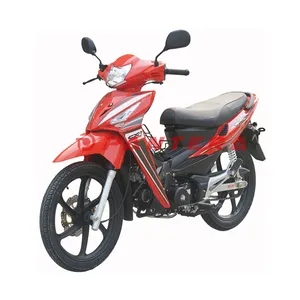



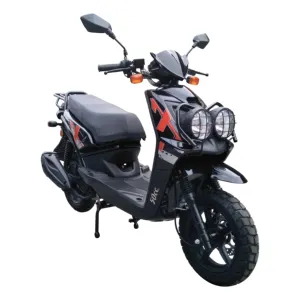


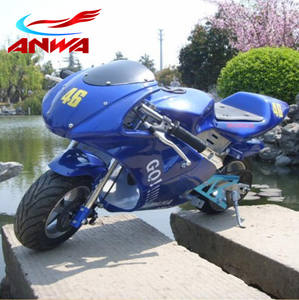
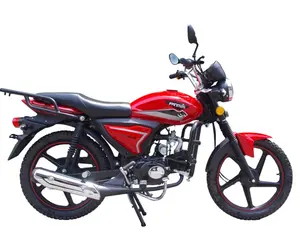








 浙公网安备 33010002000092号
浙公网安备 33010002000092号 浙B2-20120091-4
浙B2-20120091-4